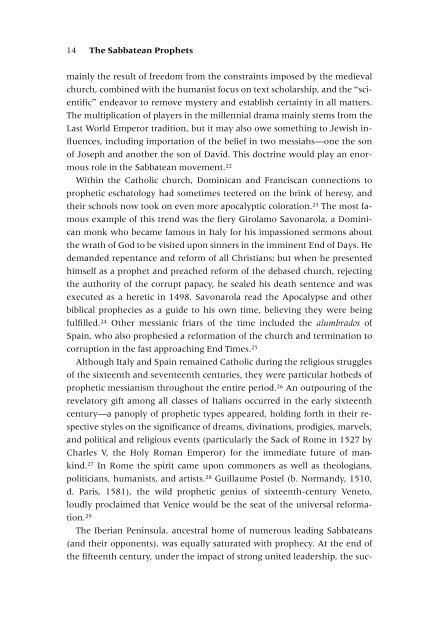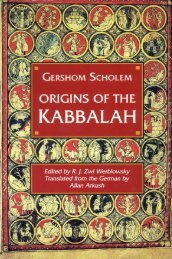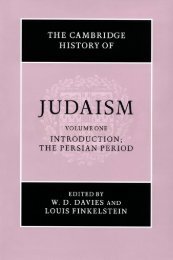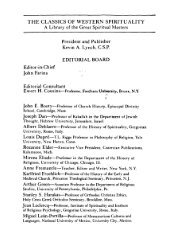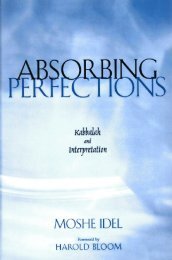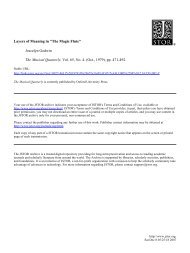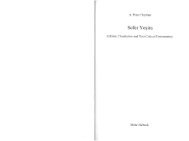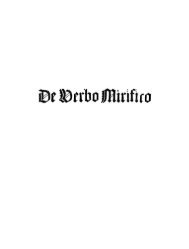You also want an ePaper? Increase the reach of your titles
YUMPU automatically turns print PDFs into web optimized ePapers that Google loves.
14 <strong>The</strong> <strong>Sabbatean</strong> <strong>Prophets</strong><br />
mainly the result of freedom from the constraints imposed by the medieval<br />
church, combined with the humanist focus on text scholarship, and the “scientific”<br />
endeavor to remove mystery and establish certainty in all matters.<br />
<strong>The</strong> multiplication of players in the millennial drama mainly stems from the<br />
Last World Emperor tradition, but it may also owe something to Jewish influences,<br />
including importation of the belief in two messiahs—one the son<br />
of Joseph and another the son of David. This doctrine would play an enormous<br />
role in the <strong>Sabbatean</strong> movement. 22<br />
Within the Catholic church, Dominican and Franciscan connections to<br />
prophetic eschatology had sometimes teetered on the brink of heresy, and<br />
their schools now took on even more apocalyptic coloration. 23 <strong>The</strong> most famous<br />
example of this trend was the fiery Girolamo Savonarola, a Dominican<br />
monk who became famous in Italy for his impassioned sermons about<br />
the wrath of God to be visited upon sinners in the imminent End of Days. He<br />
demanded repentance and reform of all Christians; but when he presented<br />
himself as a prophet and preached reform of the debased church, rejecting<br />
the authority of the corrupt papacy, he sealed his death sentence and was<br />
executed as a heretic in 1498. Savonarola read the Apocalypse and other<br />
biblical prophecies as a guide to his own time, believing they were being<br />
fulfilled. 24 Other messianic friars of the time included the alumbrados of<br />
Spain, who also prophesied a reformation of the church and termination to<br />
corruption in the fast approaching End Times. 25<br />
Although Italy and Spain remained Catholic during the religious struggles<br />
of the sixteenth and seventeenth centuries, they were particular hotbeds of<br />
prophetic messianism throughout the entire period. 26 An outpouring of the<br />
revelatory gift among all classes of Italians occurred in the early sixteenth<br />
century—a panoply of prophetic types appeared, holding forth in their respective<br />
styles on the significance of dreams, divinations, prodigies, marvels,<br />
and political and religious events (particularly the Sack of Rome in 1527 by<br />
Charles V, the Holy Roman Emperor) for the immediate future of mankind.<br />
27 In Rome the spirit came upon commoners as well as theologians,<br />
politicians, humanists, and artists. 28 Guillaume Postel (b. Normandy, 1510,<br />
d. Paris, 1581), the wild prophetic genius of sixteenth-century Veneto,<br />
loudly proclaimed that Venice would be the seat of the universal reformation.<br />
29<br />
<strong>The</strong> Iberian Peninsula, ancestral home of numerous leading <strong>Sabbatean</strong>s<br />
(and their opponents), was equally saturated with prophecy. At the end of<br />
the fifteenth century, under the impact of strong united leadership, the suc-


